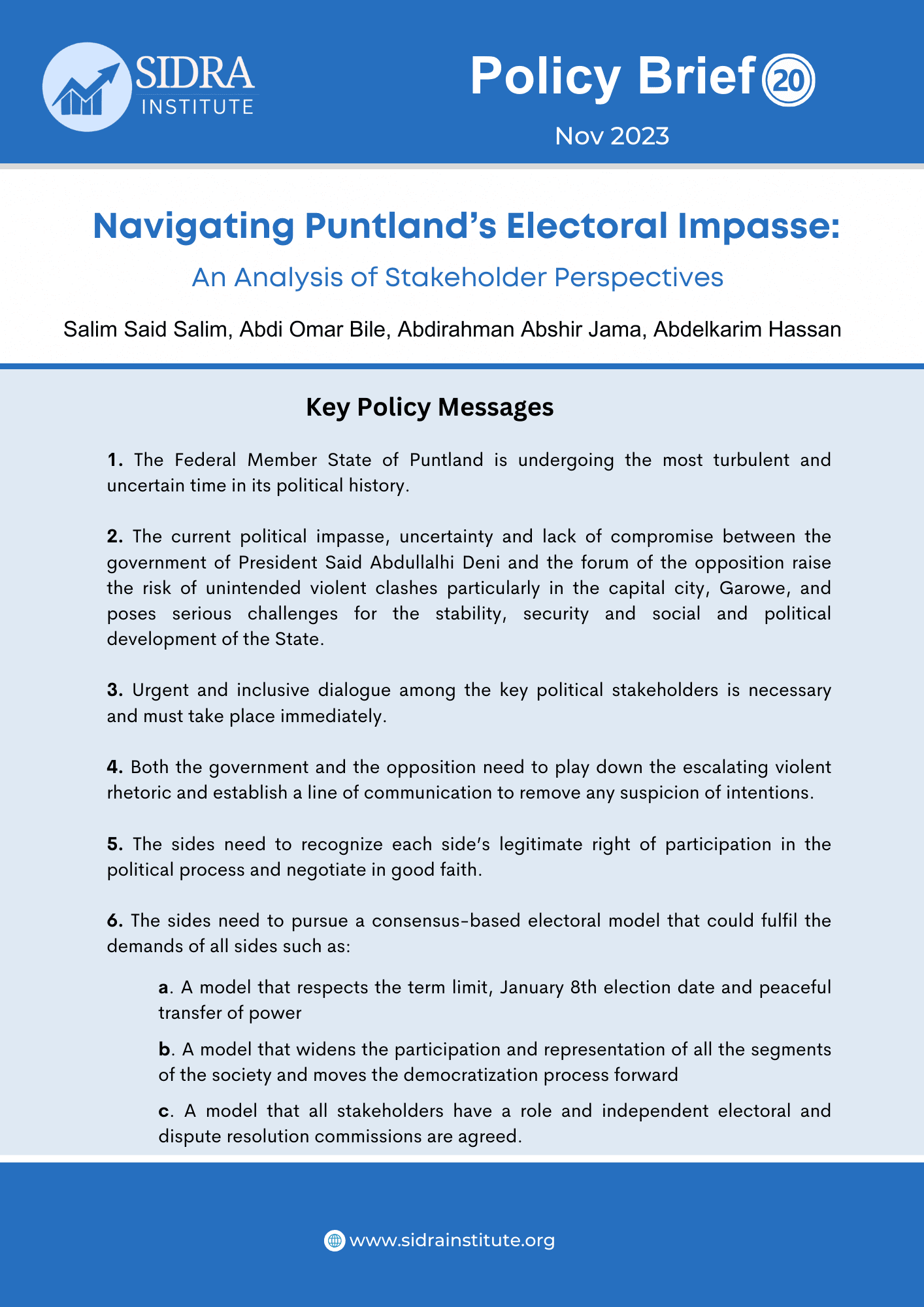Navigating Puntland’s Electoral Impasse: An Analysis of Stakeholder Perspectives
15 €
The archetypical stable autonomous Federal Member State of Puntland is undergoing the most turbulent and uncertain time in its political history. Since its foundation in 1998, the State has grappled with near political crisis at the end of every presidential tenure. The political wrangling over the term limits and electoral models between the incumbent president maneuvering to remain in power and the opposition candidates vying for the highest office of the State brings the State closer to crisis. Although the State has never transitioned to democratic system of elections, it succeeded in peaceful selection of members of the House of the People, holding presidential elections and transfer of power every five years on 8th of January in the last 15 years. This year election year 2023 has been different in many ways. The State has successfully conducted one person one vote local elections in 33 districts for the first time since it was founded. But the year has also seen the worst intra-state election-related conflict, political disagreement and polarization.
The current electoral conflict stems from unresolved issues that originated from the district council elections held on May 25, 2023, in 30 districts. Notably, three districts in Nugal, including the capital Garowe, experienced opposition boycotts leading to the non-participation of approximately 80,000 voters. This conflicts, compounded by amendments to constitutional articles, escalated into violent clashes in Garowe in June 2023. The resulting tensions have now permeated the ongoing parliamentary and presidential elections, given that the current president’s term is scheduled to conclude on January 8, 2024.
Related products
-
Towards an evidence-based and equitable childhood vaccination in fragile and protracted humanitarian setting of Somalia
13 € -
Breaking the Deadlock: Balancing Ethiopia’s Seaport Quest and Somalia’s Sovereignty in the Framework of International Law.
15 € -
THE DEATH KNELL FOR THE MIGHTY SOMALI SHILLING: The Causes and Effects of the Somali Shilling Depreciation and Currency Crisis in Puntland
15 € -
The Benefits and Burden of Chinese Foreign Direct Investment in East Africa
11 €
We are a pioneering research and consultancy firm dedicated to providing evidence-based solutions to clients across diverse sectors.
Coaching Service
Head Office Address
London Fashion Center 89/93 Fonthilll Road London N4 3JH
Days Open
Monday - Friday 08 AM - 10 PM
